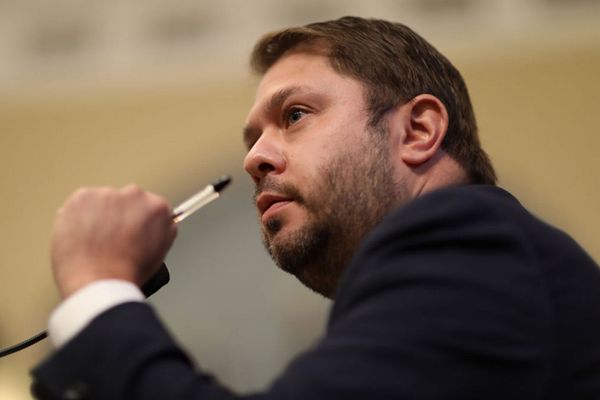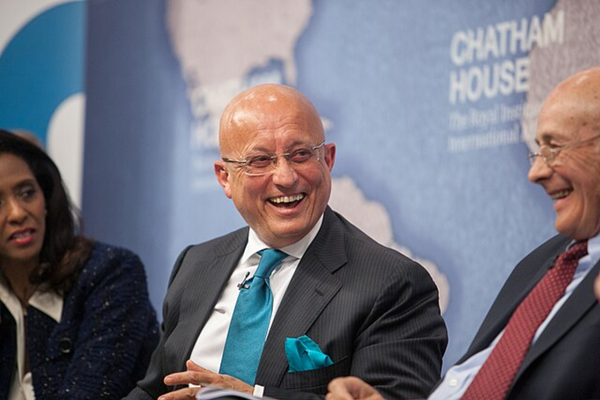
The Power of the Dog, Jane Campion’s slow-burn western starring Benedict Cumberbatch as a ferocious rancher in 1920s Montana, has taken the top two prizes at this year’s Baftas: best film and best director.
Cumberbatch accepted the award for director the absence of Campion, who was still in Los Angeles having attended the Directors Guild America awards there on Saturday.
Cumberbatch missed out in the leading actor category, losing to Will Smith for his performance as the father of Venus and Serena Williams in King Richard. The win makes Smith a huge favourite to triumph at the Oscars in a fortnight, where Campion is also heavily tipped to win.
Reinaldo Marcus Green, the director of King Richard, picked up the prize in place of the actor who, he said, “when he put on those short shorts, was like Superman”.

Best actress was awarded to Joanna Scanlan, the veteran Welsh star of stage and small screen for her astonishing performance as a bereaved Muslim convert in Aleem Khan’s debut, After Love. Scanlan gave thanks to Khan as well as her parents and her husband, Neil, “who is living proof there is no such thing as after love”.
Dune, Denis Villeneuve’s sci-fi extravaganza starring Timothée Chalamet, took the most awards of the night – five – sweeping the board in the technical categories including cinematography, production design, visual effects and sound.
Kenneth Branagh won outstanding British film for his autobiographical drama, Belfast, and used his speech to thank cinemagoers for heading out to see it. Advances in streaming were admirable, said Branagh, but “all hail the big screen too! It’s alive! And long may they live together!”

He continued: “A black-and-white film about the Troubles [was] not an easy pitch, but if you build it they will come”. Film-makers, he said, needed to “believe in the imagination of the public to embrace any and every kind of story, well told”.
Sunday night’s event was a confident return to real-life razzmatazz for the Baftas, presented with brio to a receptive, full-capacity crowd at the Albert Hall. An 85-year-old Shirley Bassey opened proceedings with a performance of Diamonds Are Forever to mark 60 years since Dr No, which set the tone for an excitable and ebullient ceremony.
There were scant references to the pandemic and only fleeting mentions of the invasion of Ukraine, including a dig at home secretary Priti Patel’s immigrant policy from Andy Serkis, as well as from host Rebel Wilson.
Wilson, seen as a bold hire by Bafta following a badly received two-year stint by Joanna Lumley, won her biggest round of applause after she raised a middle finger and explained “in all sign languages, this is the international sign for Putin”.
This was blurred out in the pre-watershed TV broadcast, which Wilson had previously vowed would not prevent her from delivering as risque a ceremony as possible. She sailed close to the wind in her opening monologue, expressing a desire to sit on Daniel Craig’s face and drawing a pair of nipples on the 007 logo.
Later, Wilson unveiled a cake she had made in the shape of Cumberbatch’s face, the cheekbone of which she then devoured “so I can tell people I had him inside me”.
She also made reference to disgraced actor Armie Hammer, the open marriage of Will and Jada Pinkett Smith, the lockdown parties at Downing Street and JK Rowling’s contributions on the transgender debate. Prince Andrew’s evening at Pizza Express in Woking also merited a mention, as did Oprah Winfrey’s TV interview with Prince Harry and Meghan Markle, the drama and tension of which Wilson praised.
Prince William, the president of Bafta, did not attend the ceremony due to “diary constraints” but did make an appearance by video link in which he expressed his pride in Bafta’s mentoring scheme, Breakthrough.

Troy Kotsur became the first deaf actor to win a Bafta for his role in family drama Coda, pushing him into pole position at the Oscars. Kotsur is the second ever deaf actor to be nominated for an Academy Award after his Coda co-star Marlee Matlin, who won 35 years ago. The film also took best adapted screenplay.
Supporting actress went to Ariana DeBose, whose turn in West Side Story was her screen debut. DeBose paid tribute to the film’s casting director, Cindy Tolan, who earlier in the evening triumphed in her category. Tolan noted that Steven Spielberg’s update of the musical was the first film for 50 members of its cast, selected from some 30,000 hopefuls.
Lin-Manuel Miranda’s Encanto was named best animation. Speaking on the podium, composer Germaine Franco said she had wanted to make a film that tells “my beautiful brown children they are seen and heard and they’re important”.

Paul Thomas Anderson was a surprise winner in the original screenplay category for his coming-of-age comedy drama Licorice Pizza. The film’s star Alana Haim and composer Jonny Greenwood picked up the prize in his absence.
Ryusuke Hamaguchi won the award for best film in a foreign language for Drive My Car, his epic road movie based on the Haruki Murakami short story. The film is seen as a successor to the likes of Parasite in moving from acclaim at Cannes, where it took three prizes, to a substantial showing at the Oscars, where it is up for four awards including best picture and best director. It is the first Japanese film up for the former while Hamaguchi is only the country’s third ever director nominated – and the first since Akira Kurosawa in 1985.
The awards were decided by the 7,000 members of the British Film Academy, which has undergone a considerable behind-the-scenes overhaul since the backlash to the lack of diversity in its shortlists two years ago. A raft of 220 new rules and regulations were brought in, including quotas for film-makers and the compulsory viewing by voters of at least 15 randomly selected titles in contention. Such measures were credited with this year’s notably wide-ranging set of nominees.
• Join Peter Bradshaw and fellow Guardian film critics for a Guardian Live online event ahead of the Oscars on Thursday 24 March.







